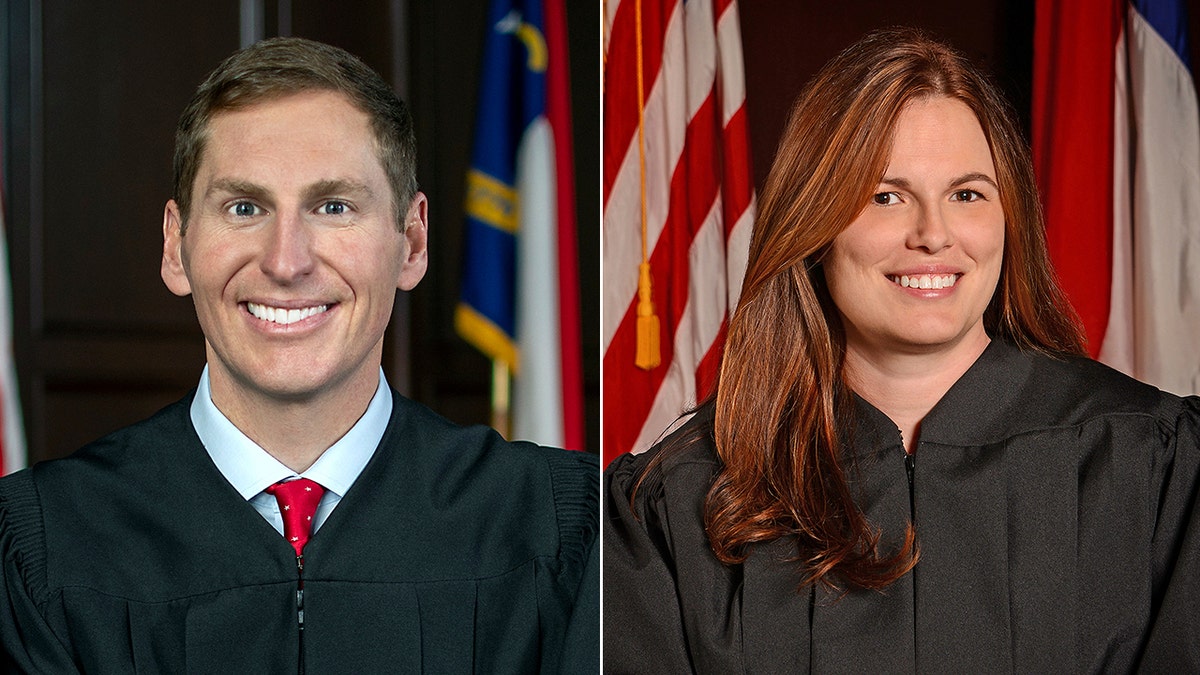The Department of Justice (DOJ) sued the State of North Carolina and the North Carolina State Board of Elections on Tuesday for allegedly failing to maintain an accurate voter list.
The Trump administration claims the Tar Heel State is in violation of the 2002 Help America Vote Act (HAVA) after board officials provided a statewide voter registration form that did not make clear whether an applicant must provide a driver’s license number, or if the applicant does not have a driver’s license, the last four digits of the applicant’s social security number. If an applicant has neither, the law says the state must assign a special identifying number.
The lawsuit says, “a significant number of North Carolina voters who did not provide a driver’s license number or the last four digits of a social security number using that voter registration form were nonetheless registered by their election officials, in violation of HAVA” and the defendants “only took limited actions to prevent further violations.”
FEDERAL JUDGE ORDERS NC TO CERTIFY SUPREME COURT ELECTION RESULTS WITH DEMOCRAT LEADING
“Upon information and belief there currently are a significant number of voters that do not have a driver’s license number, last four digits of a social security number, or any other identifying number, as required by Section 303 of HAVA, listed in North Carolina’s state voter registration file,” according to the filing in the U.S. District Court for the Eastern District of North Carolina. “Those violations will continue absent relief from this Court.”
“Accurate voter registration rolls are critical to ensure that elections in North Carolina are conducted fairly, accurately, and without fraud,” Assistant Attorney General Harmeet K. Dhillon of the Justice Department’s Civil Rights Division said in a statement. “The Department of Justice will not hesitate to file suit against jurisdictions that maintain inaccurate voter registration rolls in violation of federal voting laws.”
A previous edition of the state elections board, in which Democrats held a majority, acknowledged the problem in late 2023 after a voter complained. The board updated the voter registration form but declined to contact people who had registered to vote since 2004 in time for the 2024 elections so they could fill in the missing numbers.
According to the lawsuit, the board indicated that such information would be accumulated on an ad hoc basis as voters appeared at polling places. It is unclear exactly how many voters’ records still lack identifying numbers.
Lawyers from the DOJ Civil Rights Division want a judge to give the state 30 days to develop a plan to contact voters with records that do not comply with federal law, obtain an identifying number for each and add that to the electronic list.
The state and national GOP last year sued over the lack of identifying numbers, which they estimated could have affected 225,000 registrants. However, federal judges declined to make changes so close to the general election.
The lawsuit also referred to President Donald Trump’s executive order on elections in March to “guard against illegal voting, unlawful discrimination, and other forms of fraud, error, or suspicion.”

FEDERAL JUDGE KICKS BATTLE OVER NC SUPREME COURT ELECTION BACK TO STATE COURT
After Election Day, formal protests were filed by Jefferson Griffin, a Republican candidate for a seat on the state Supreme Court, who challenged about 65,500 ballots. He contended that about 60,000 were cast by registrants whose records failed to contain one of the two identifying numbers. The state election board said earlier this year at least roughly half of those voters actually did provide an identifying number.
Griffin also challenged another 5,500 ballots belonging to overseas military personnel and their family members who were not required to attach a copy of their photo IDs, as well those in a category of “Never Residents,” or U.S. citizens with family ties to North Carolina who have never lived in the United States.
A state appeals court criticized the board’s handling of the registration records but ultimately ruled the challenged ballots had to remain in the final election tally.
Six months passed during what amounted to be the nation’s last contested 2024 election.
Democratic Associate Justice Allison Riggs was ultimately certified as the winner over Griffin by 734 votes out of over 5.5 million ballots cast. Griffin conceded earlier this month but said he did not fully agree with the court’s analysis.
This month, the state election board’s composition changed to reflect a 2024 law approved by the GOP-dominated General Assembly that shifted the board’s appointment powers from the now-Democratic governor to Republican State Auditor Dave Boliek. A previous 3-2 Democratic majority is now a 3-2 Republican majority.
The new iteration of the board sounds open to embracing the Justice Department’s wishes.
Executive Director Sam Hayes said late Tuesday the lawsuit was being reviewed, “but the failure to collect the information required by HAVA has been well documented.”
“Rest assured that I am committed to bringing North Carolina into compliance with federal law,” he said, according to The Associated Press.
Local elections start in September.
The Associated Press contributed to this report.
Read the full article here

